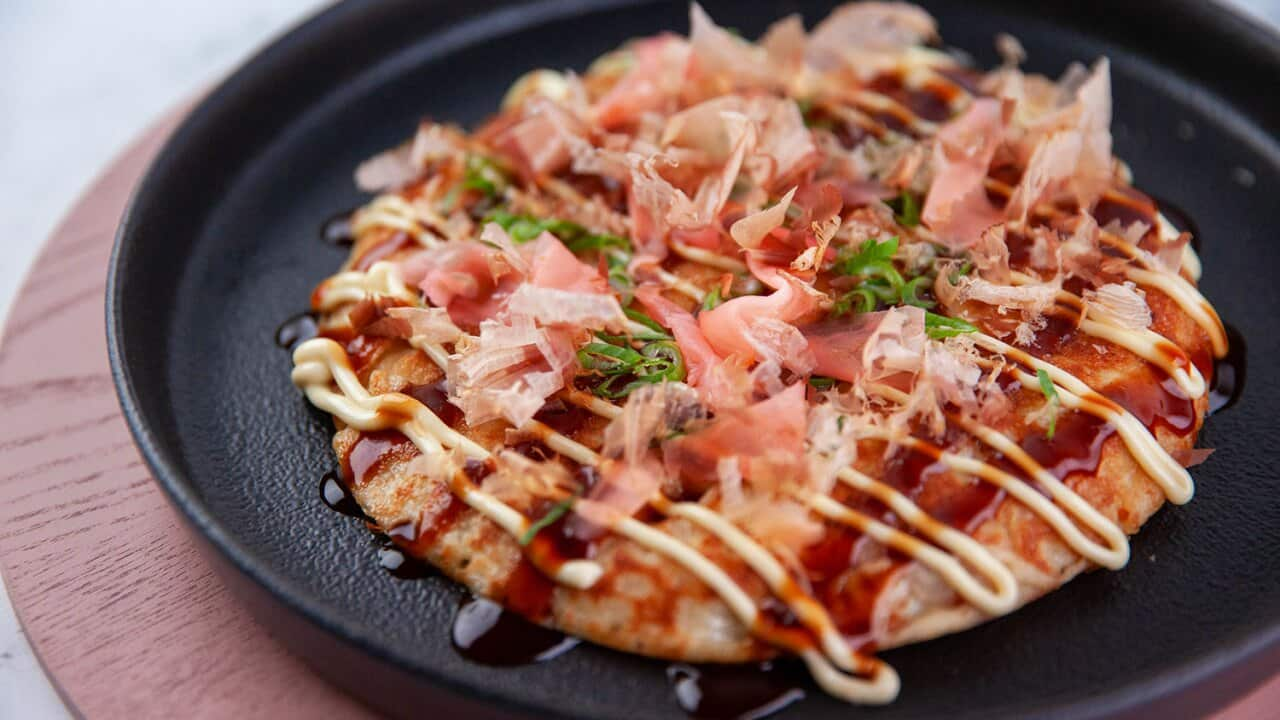serves
2
prep
15 minutes
cook
45 minutes
difficulty
Easy
serves
2
people
preparation
15
minutes
cooking
45
minutes
difficulty
Easy
level
Ingredients
- 300 g (2 cups) plain flour
- 350 ml dashi stock (see note)
- 2 eggs, lightly beaten
- 265 g (3½ cups) finely shredded white cabbage
- vegetable oil, for pan-frying
- 50 g (½ cup) shredded carrot
- ¼ cup katsuobushi (dried bonito flakes), plus extra to serve
- tonkatsu sauce, kewpie mayonnaise, pickled ginger, thinly sliced spring onion, to serve
Instructions
1. Place the flour and dashi stock into a large bowl and whisk until smooth. Add the egg and 2 cups (150 g) of the shredded cabbage and mix to combine.
2. Heat 2 tablespoons of oil in a medium non-stick frying pan over medium heat. Using a ladle, pour in enough batter to make a 15 cm pancake about 2 cm thick. Scatter half the remaining cabbage and half the carrots over the top, then sprinkle with half the katsuobushi. Scoop a bit of batter into the ladle and drizzle it back and forth over the top of the pancake. Don't cover the entire surface. You want to cover some parts of the toppings so that they stick in between the bottom and top layer of batter.
3. Cook the okonomiyaki over low-medium heat for 10 minutes or until the base is slightly golden brown and when you lift the pancake with a spatula, the pancake holds its shape. Turn over with a spatula and cook for another 5 minutes or until the bottom is slightly golden brown. To check whether the pancake is done, insert a knife or chopstick into the middle and it should come out clean. Cook for a little longer if necessary. Transfer the pancake to a plate and repeat with the remaining ingredients.
4. Drizzle the tonkatsu sauce all over the pancake, followed by the kewpie mayonnaise. Sprinkle over some pickled ginger, katsuobushi and spring onions. Serve warm.
Note
• To make dashi stock, simply stir 1 teaspoon dashi powder into 500 ml (2 cups) boiling water.
Diana Chan is exploring the many dishes of Asia within Australia in the brand-new series, .
Cook's Notes
Oven temperatures are for conventional; if using fan-forced (convection), reduce the temperature by 20˚C. | We use Australian tablespoons and cups: 1 teaspoon equals 5 ml; 1 tablespoon equals 20 ml; 1 cup equals 250 ml. | All herbs are fresh (unless specified) and cups are lightly packed. | All vegetables are medium size and peeled, unless specified. | All eggs are 55-60 g, unless specified.









